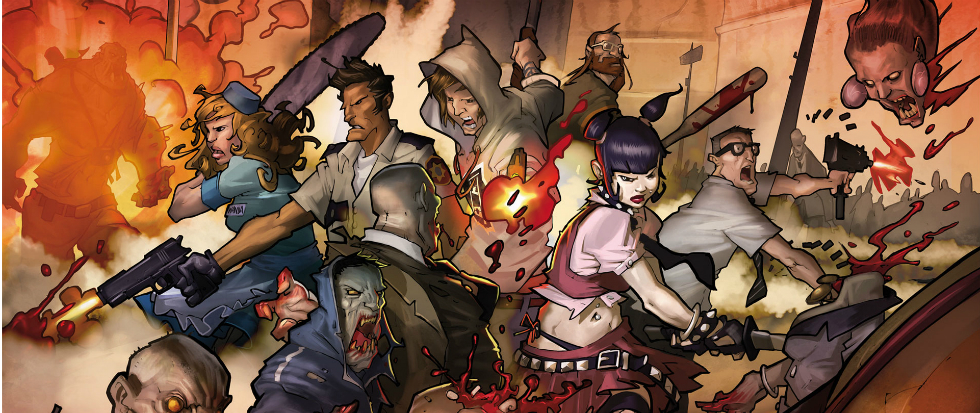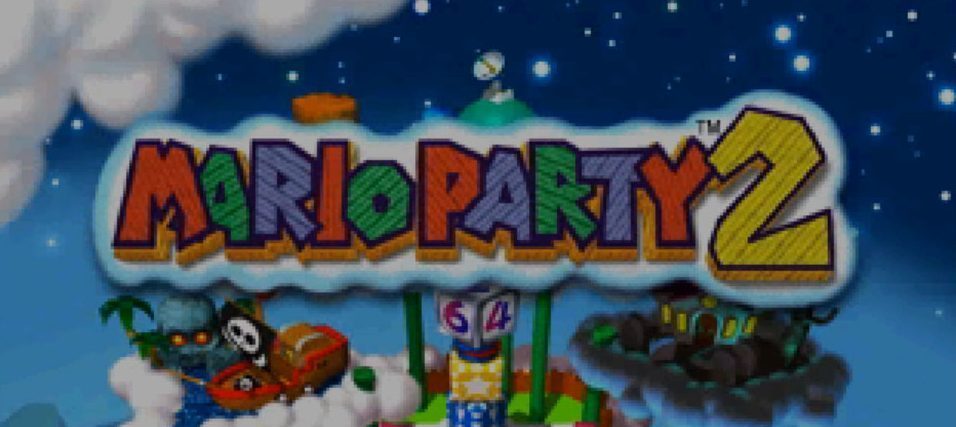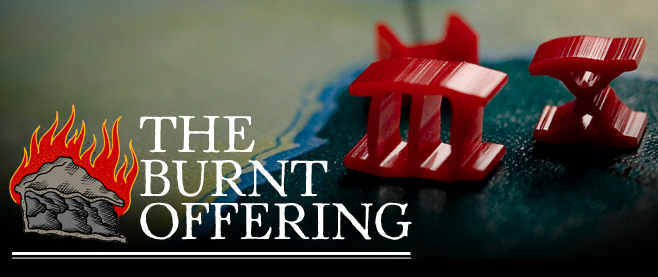
Local Multiplayer Isn’t Dead, It’s Cardboard
Like many people my age, I have fond memories of late nights and heated arguments over a warm Nintendo 64. Usually involving one of my jerk friends picking Oddjob or peeking at my corner of the screen. A lot of regrettable things were said across the living room during those nights, but it was okay because they were spoken in the presence of polygonal James Bond, and that made it okay to insult your best friends in the most despicable ways possible. Chips were flung, elbows were thrown, threats were made; we treasure those nights gathered close around the television with four controllers plugged in.
Local multiplayer is not as prominent as it once was. Recently at a gathering of several friends, we all left early so that we could play Overwatch together 15 minutes later. “The future can be lame sometimes,” we observed. It is a common (and admittedly satisfying) practice to lament the decline of couch co-op and split screen. Indeed, there is no shortage of forums dedicated to the loss of one of our favorite childhood pastimes, but I’m happy to report that local multiplayer is alive and well. It just takes a different form these days.
The board game industry has been growing at an astonishing rate these last several years. It raises a lot of questions regarding our priorities as game consumers, and certainly the reasons for diving into the hobby will differ from person to person. For me, tabletop gaming scratches the same itch as rounds of Super Smash Bros. or races of Beetle Adventure Racing! (don’t deny your addiction to that game), and has produced stories on par with anything video games have to offer.
The requirement that all players be sitting at the same table is one of the biggest reasons my group was drawn to tabletop games. Social interaction is  fundamental in board gaming, and serves as a sort of analogue to the bygone era of split screen gameplay. Only now we do it in the presence of this guy instead of Polygon James Bond. The same kind of insults fly and the same accusations of cheating abound, but we do it with cards in our hands instead of controllers.
fundamental in board gaming, and serves as a sort of analogue to the bygone era of split screen gameplay. Only now we do it in the presence of this guy instead of Polygon James Bond. The same kind of insults fly and the same accusations of cheating abound, but we do it with cards in our hands instead of controllers.
Two years ago, our group was in the midst of a particularly tense game of Power Grid when I noticed my neighbor peeking at the paper money I had stacked in front of me in preparation for my next turn. I quickly covered it and said “money isn’t public knowledge!” My neighbor insisted that it was, and a heated argument ensued with the rest of the table taking sides.
I’d go on to check the rules after the game ended. Sure enough, player cash is not public knowledge. And that his peeking? An analogue to screen watching, and very illegal. We shared a good laugh, and to this day the phrase “is money public knowledge?” remains an in joke in the group.
I often find myself missing those nights of tense Halo matches or rounds of 99-lives Smash, but at least there is a capable substitute in the form of board games. It’s almost enough to help me forget the guilt of leaving my Nintendo 64 boxed up in the garage along with the puppy dog eyes of James Bond. We may not have couch co-op anymore, but we do have cardboard, and for us it fills the void.





